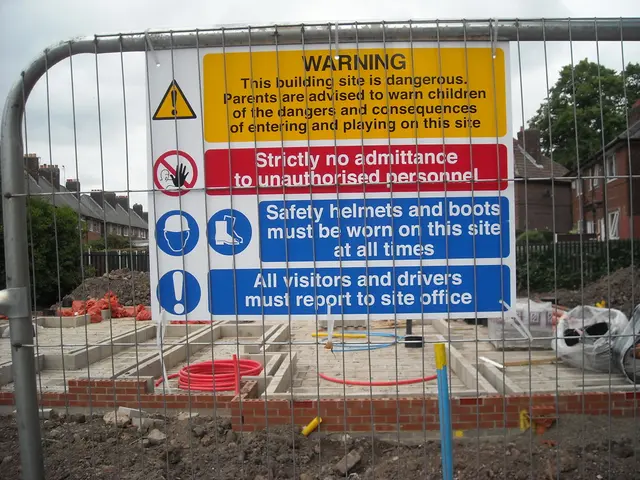Trump Delays China Tariff Deadline by 90 Days Following His Announcement of Amicable Relations with Xi
In a surprising turn of events, President Donald Trump has delayed the imposition of higher tariffs on China until November 9. This decision was announced through an executive order signed by the President on Monday.
The trade deal between the U.S. and China remains in a state of managed tension, with a recent tariff truce extending for 90 days, halting planned tariff hikes to provide short-term stability. However, no major rollback of tariffs has occurred as of August 2025.
The current tariff structure sees the U.S. maintaining high tariffs on Chinese goods, with a composite rate effectively around 55%. This includes a 10% baseline tariff, 20% "fentanyl" tariffs, and 25% Section 301 tariffs originating from the Trump administration's earlier trade actions. China, in response, imposes tariffs averaging around 32.6% on U.S. exports.
The trade relationship is complex, with multiple overlapping tariff lines and related executive orders regulating imports reciprocally to address perceived trade imbalances and national security concerns.
Regarding the impact of these Trump-era tariffs on inflation, economists generally argue that they have contributed to higher prices on consumer goods in the U.S. The repeated tariff hikes since 2018, including those intensified in 2025, have generally been associated with inflationary pressures, although the precise quantification is debated.
Trump's decision to delay the tariff hikes comes after trade negotiations in May between the U.S. and China in Geneva. During these talks, the U.S. agreed to reduce its tariffs against Chinese imports from 145% to 30%, while China agreed to reduce its tariffs against U.S. imports from 125% to 10%.
Trump signaled that if a trade agreement is reached, he intends to meet with the Chinese president before the end of the year. The President has expressed a positive relationship with President Xi of China and stated that trade negotiations with China were progressing well.
However, the U.S. Council of Economic Advisors Chair Stephen Miran has stated that tariffs are not causing a spike in inflation. The exact reasons for the delay in the imposition of higher tariffs are not clear at this moment.
Trade talks between the U.S. and China are ongoing, with Secretary of the Treasury Scott Bessent and President Trump engaging in discussions in Sweden at the end of July. Trump mentioned that China has been paying significant tariffs to the United States.
In summary, the trade deal between the U.S. and China remains in a state of managed tension, with high tariffs on both sides. The delay in the imposition of higher tariffs is a positive step towards resolving trade issues between the two countries. The exact impact of these tariffs on inflation is still a subject of debate among economists.
- In light of the delay in higher tariffs, policymakers and economists are watching market trends closely, as higher prices due to inflation could impact the wealth of many citizens.
- Meanwhile, the ongoing trade war and conflicts between the U.S. and China have remained a point of focus for general news outlets, with many following the developments closely.
- Aside from trade disputes, other global issues such as migration, war-and-conflicts, crime-and-justice, and accidents (including car-accidents and fires) have also been dominating headlines.
- On a related note, the political landscape has been shifting drastically, with policies and legislation being implemented that could influence the overall economic stability of the country.
- In this context, asset markets have been volatile, with investors seeking stable investments to hedge against potential economic downturns.
- As the broader implications of these trade-related policies unfold, it remains to be seen how the U.S. and China will continue to navigate their complex trade relationship moving forward.








